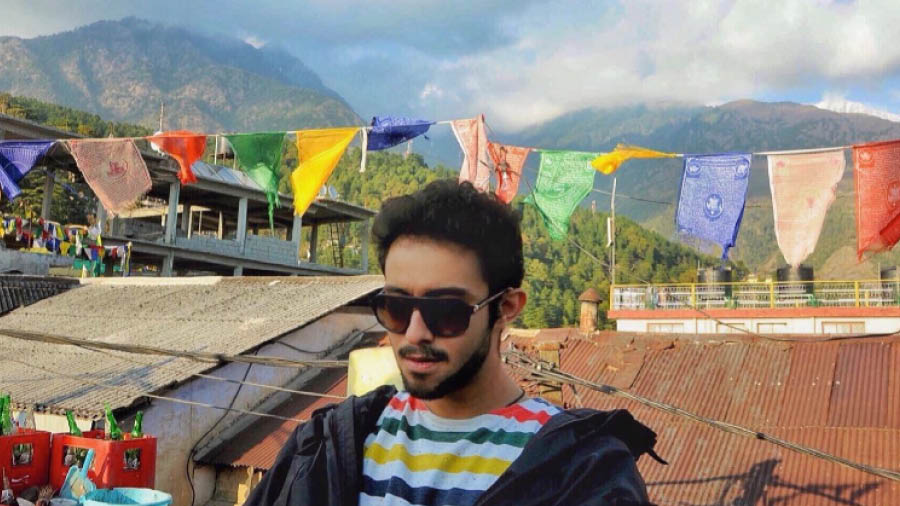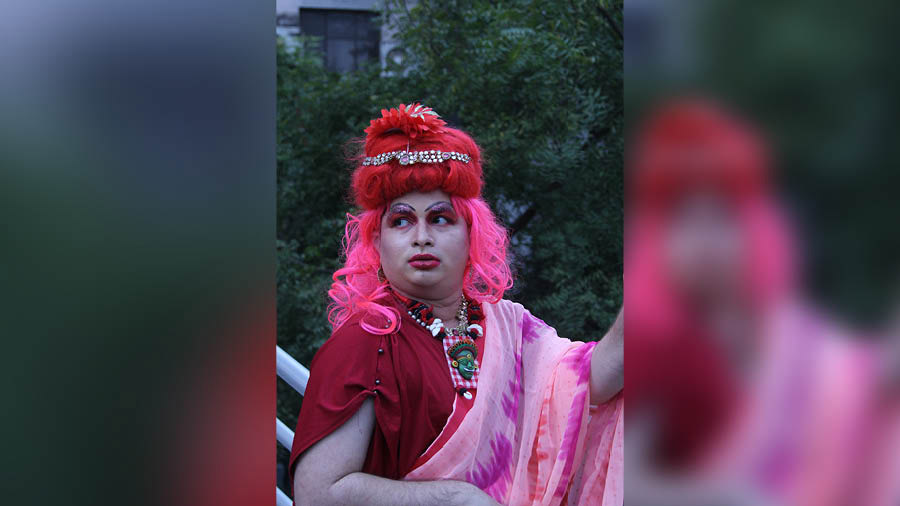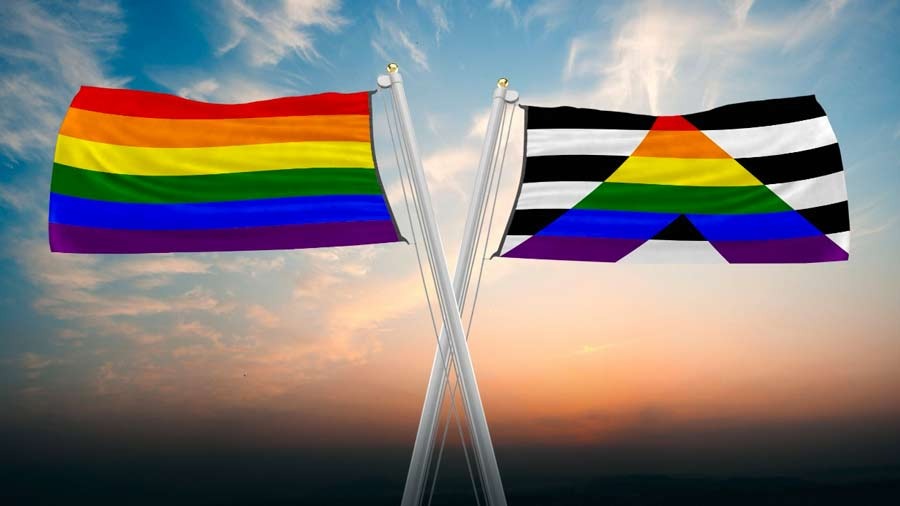Brutal honesty, an easy flow of words, and some sass on the side. That’s Aniruddha Mahale for you. My Kolkata caught up with the founder of the blog @theguysexual and the author of Get Out: The Gay Man's Guide to Coming and Going Out! about his experiences of being beautifully and unapologetically gay, the nuances of allyship and more.
My Kolkata: You started your career as an architect. How did you get into writing?
Aniruddha Mahale: Wow, that was a long time ago. I graduated from Rachana Sansad in 2011 and then taught there for a couple of years. I realised, even as a student, that it wasn’t my calling. In 2012, my sister’s friends were setting up start-ups and needed writers for cheap. What was bad money for them was good money for me, so I came on board. I went from writing content to writing a book because my sister is also a writer, so maybe it's the ‘older sibling syndrome’.
A few years ago, one of the commissioning editors at HarperCollins had asked people with interesting pitches to DM her on Twitter. One night, I was drunk on a bottle of wine at 11pm, and randomly made a pitch and sent her a 100-word DM without having a concrete book. She liked it, which was strange because publishing houses don’t sign first-time authors without a finished manuscript. She asked me for a chapter-by-chapter synopsis and a detailed arc. I gave an excuse that I was travelling and promised to send it after three days. I spent the next three days at home, working on it! I feel I was at the right place at the right time, because I sent her the message a month before parts of Section 377 were scrapped, and everybody suddenly woke up and realised that queer people exist. I’m not saying that I capitalised on the pinkwashing, but I did capitalise on the pinkwashing. No regrets! (laughs)
Wasn’t that the time when brands suddenly realised that queer people also buy things?
Actually, queer people buy a lot more things because we don't have children to support, so we have a lot more disposable income! (chuckles)
Was your family supportive about your sexuality?
I had a pleasant childhood, with loving parents and a supportive sister. They backed me whenever I made decisions like leaving architecture or taking a six-month sabbatical to work on my book, which most parents wouldn’t. It's not necessary for your close ones to hold Pride placards or come to marches, it is about tiny things like holding their ground when a relative asks why they are not married. But I do come from a privileged bubble, where these taboos aren’t as hard-hitting because I have financial stability and a secure social standing.
Drawing from the support you received from your family, and being part of the Absolut Ally campaign, can you share insights on how one can be a better ally?
People need to be mindful of casual queerphobia. I have known people who call themselves allies, but then say that I’m the first gay person they have met. I’m not from Jupiter — not the first of my species to come to Earth (chuckles). Ignorance and hate go hand-in-hand. Knowing the queer stories around you depends on how comfortable people feel to talk to you.
I also think that people need to move past stereotypes, like how gay men are actually women at heart, or they like pink. People ask me for fashion advice, but my go-to outfit is a black tee! These stereotypes have been perpetuated by the media, where the gay character is a promiscuous fashion diva, who is always drinking or snorting cocaine. Such people do exist, but what about the gay men who are accountants and software engineers, with regular day jobs?
With Absolut, I worked on a campaign on allyhood. There’s no template to being an ally. The whole point is to treat a queer person like any other person. You don’t need to completely block out that bit of their identity, but you also don’t need to walk around eggshells. It is 2023, and this is something you should be. You are not going to win any awards for being an ally. It isn’t about you, but the person whose journey you are supplementing.
How do you preserve the voice of Aniruddha as an individual, while writing about something like gay issues, which has a certain responsibility attached?
I have a lot of voices in my head. They take turns to assert their opinions, and thankfully most of them align. If I feel strongly about an issue, I speak purely because of my individual approach. My individual and author identities are a part of a whole. The only reason I talk about queer issues so much is because I'm very open and don't have any roadblocks. I’m not going to lose work or friends because I talk about being gay. Besides, talking helps people, because I do get the odd DM telling me that I have given someone the courage to come out. That being said, I don’t think I am a queer-rights activist because I have done nothing for the community apart from writing the book, which I also wrote for myself.
I wanted the book to be as inclusive as possible, and the entire premise is about ‘how not to date an as*****’. Being an as***** is not specific to any gender or sexuality. This isn’t uniquely queer, but human. I am not coming from a moral high ground, and have made my share of mistakes too. The book is me telling you about the mistakes I made, and asking you not to make them.
What kind of dates have you had which inspired this book?
I once went out with this maths professor, who began talking about his ex barely 10 minutes into the date. He spent almost three hours talking about how he had finally found peace from a toxic seven-year relationship and then asked if I wanted to go back to his place. When I agreed, he added that his flatmate would be at home, and this flatmate turned out to be the same ex-boyfriend!
I once got a LinkedIn request from someone who worked at a really cool workplace, and I accepted, hoping to get a job interview there. He then slid into my DMs and started making small talk about writing, before offering to take me out for a drink. I left him on ‘read’ because I wasn’t expecting to be asked out on LinkedIn!
I also had this really wholesome encounter in 2017. I met a random girl at a bar, who I had mutual friends with. We got so drunk that we instantly became best friends (laughs). A week later, she told me that she had met the perfect person for me, and set up a surprise blind date for both of us. She didn’t even share our names, but coordinated with both of us till a minute before the date, when she shared what one was wearing with the other. It was a fantastic date, and we were together for a year after that.
You’ve spoken extensively about mental health on Instagram. What are some mental health challenges that are exclusive to the queer community?
I speak mostly about gay men because they are my target audience. I feel that a lot of our relationships with food and our bodies is a matter of contention, and body dysmorphia is a major issue. I know a lot of people fall into substance abuse because of this pressure.
Everybody should see a therapist irrespective of sexuality or gender. Do not go for therapy because you have a problem, go because you will find out that you have a problem. I spent six years without therapy and always felt sad. I saw a therapist for four weeks and wasn’t sad anymore. This is the worst advertisement for therapy, but that’s how it is (laughs).
How can brands continue allyship beyond June?
For starters, do not change your logos to a rainbow theme! If you really want to be more inclusive, hire more queer people and make your workplace a safer space. By this, I don’t mean hiring queer people for internships, but in leadership roles. If there are more voices up there, it will trickle down to the last person in your organisation. If you can’t pass on the mic, at least share it.
As a creator, what are your thoughts on queer representation in pop culture?
My mother always finds it funny how every show has a taken gay or lesbian character, without acknowledging the alternate sexualities that exist.
While I love the coming-out-and-being-accepted story, there is a whole world beyond that. It is just one of the primary steps in your LGBTQIA+ journey. Why not show us what happens after that? How about navigating allyship? Or living in a setup where one the primary characters is now openly queer, and how everybody else navigates that, without making it the only thing about them, but not diminishing it as a side note? TV and movies need to understand that gender and sexuality is a part of somebody's identity, but not their whole identity.


